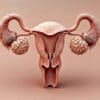Unveiling the Hidden Connection: Can Fatty Liver Impact Your Reproductive Health?
Fatty liver disease, a condition where excessive fat builds up in the liver, is increasingly common due to the modern lifestyle. While it’s often associated with metabolic and cardiovascular issues, emerging research suggests its impact might extend beyond these areas. A fascinating yet concerning area of interest is whether fatty liver can affect the reproductive system. Let’s delve into this potential link and understand how it may impact reproductive health, especially considering the Indian context.
Understanding Fatty Liver Disease
Fatty liver disease is primarily categorized into two types: Alcoholic Fatty Liver Disease (AFLD) and Non-Alcoholic Fatty Liver Disease (NAFLD). NAFLD, more prevalent in India, is not caused by alcohol consumption but is closely linked to obesity, diabetes, and high triglyceride levels. As the liver becomes overwhelmed with fat, its ability to function properly diminishes, leading to inflammation and potential liver damage.
The Reproductive System Connection
1. Hormonal Imbalance: The liver plays a crucial role in hormone metabolism. In individuals with fatty liver, hormonal imbalances can occur, which may affect reproductive functions. For instance, in women, it could lead to menstrual irregularities, while in men, it might result in reduced testosterone levels and fertility issues.
2. Polycystic Ovary Syndrome (PCOS): NAFLD has been associated with PCOS, a condition prevalent among Indian women, characterized by irregular menstrual cycles and ovulation issues. Both conditions share common risk factors like insulin resistance and obesity, suggesting a possible interplay.
3. Impact on Pregnancy: Women with fatty liver disease might face complications during pregnancy, such as gestational diabetes or preeclampsia, which can affect both maternal and fetal health.
Lifestyle and Dietary Factors in India
The dietary habits in India, rich in carbohydrates and fatty foods, combined with a sedentary lifestyle, contribute significantly to the prevalence of fatty liver disease. Recognizing these cultural and lifestyle aspects is vital in addressing and managing the condition to prevent its potential impact on reproductive health.
Empowering Change with Fitpaa
At this juncture, it’s crucial to not only address existing health concerns but to actively work towards prevention and management. This is where Fitpaa, with its cutting-edge technology and personalized health plans, plays a pivotal role.
– Metabolism Assessment: Fitpaa identifies the root causes of health issues, including fatty liver, through comprehensive metabolism assessments, paving the way for targeted interventions.
– Personalized Fitpaa Capsule: Post-assessment, Fitpaa provides a customized plan, the Fitpaa Capsule, combining medical therapy, exercise, and nutrition, tailored to promote liver health and hormonal balance, which are crucial for reproductive health.
– Daily Guidance and Support: With real-time guidance and a team of experts, Fitpaa ensures you stay on track with your health goals, reducing the risk of fatty liver and its associated complications.
For anyone looking to improve their health and safeguard their reproductive health, Fitpaa is your partner in this journey. Download the Fitpaa app today and take a proactive step towards a healthier, happier future. Let’s embrace a lifestyle where health and fertility are not compromised, and dreams are unfettered by health concerns.











